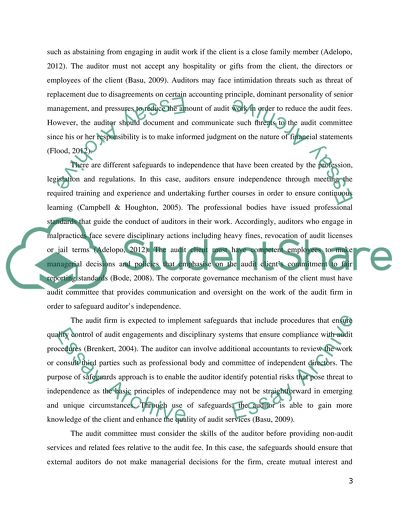Cite this document
(“Issues Related To The Auditor Independence Research Paper”, n.d.)
Issues Related To The Auditor Independence Research Paper. Retrieved from https://studentshare.org/finance-accounting/1497955-the-role-of-safeguards-in-strengthening
Issues Related To The Auditor Independence Research Paper. Retrieved from https://studentshare.org/finance-accounting/1497955-the-role-of-safeguards-in-strengthening
(Issues Related To The Auditor Independence Research Paper)
Issues Related To The Auditor Independence Research Paper. https://studentshare.org/finance-accounting/1497955-the-role-of-safeguards-in-strengthening.
Issues Related To The Auditor Independence Research Paper. https://studentshare.org/finance-accounting/1497955-the-role-of-safeguards-in-strengthening.
“Issues Related To The Auditor Independence Research Paper”, n.d. https://studentshare.org/finance-accounting/1497955-the-role-of-safeguards-in-strengthening.


